I’ve read books in English, French, and Arabic. Both fiction and non-fiction.
Mostly, I’ll post here non-fiction English books. At least, the ones that I can recommend and might be relevant to most of you.
Also, I’ll skip the books that I read but don’t remember much of them. I spent a decade reading without taking notes. Please don’t do like me. It’s such a waste.
This section is only meant to spark your interest in books. So I’ll only write my impressions and three notes from the books. For more details, summaries and reviews, you can find them on Amazon or any other source.
For a faster research, you can click on any tag below to find the books of your interests.
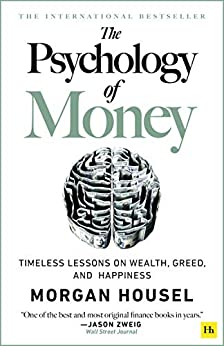
The Psychology of Money
Timeless lessons on wealth, greed, and happiness
Morgan Housel
The way we manage money doesn't depend only on our technical skills, but on our personal history, emotions and behaviors. Learning about these things can give you a better understanding of your behavior with money. And who knows, it might save you from future troubles too. Through simple writing and short stories, Morgan Housel makes sure that every we'll get the lesson.
Three notes from the book:
1- The more extreme the outcome, the less likely you can apply its lessons to your own life.
2- There is no reason to risk what you have and need for what you don't have and don't need.
3- "Enough" is realizing that the opposite—an insatiable appetite for more--will push you to the point of regret.
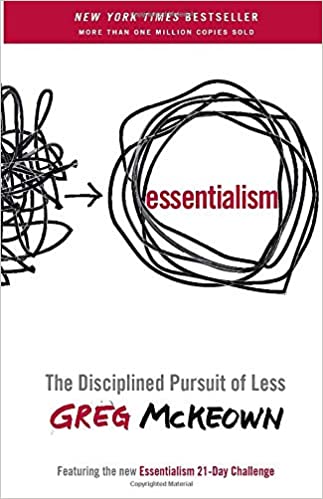
Essentialism
The Disciplined Pursuit of Less
Greg McKeown
If you are the kind of person who has 10 priorities per day, then you need to read Essentialism. This book is not about getting more things done. It's about doing the few and essential things in a better way.
Three notes from the book:
1- If you don't prioritize your life, someone else will.
2- Have you ever felt the stress that comes from simultaneously holding two contradictory beliefs: "I can't do this" and "I have to do this"?
3- For a type-A personality, it is not hard to push oneself hard. Pushing oneself to the limit is easy! The real challenge for a person who thrives on challenges is not to work hard.
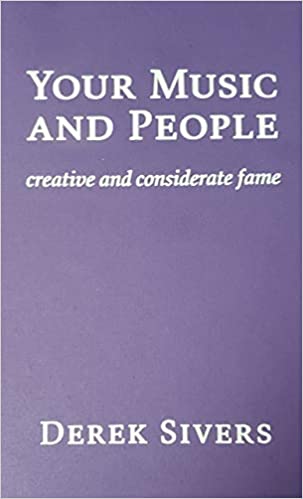
Your Music and People
Creative and Considerate Fame
Derek Sivers
I like the concise way Derek Sivers presents his ideas. His book follows the same logic as his blog: one tiny idea per chapter. Even if the title mentions music, any content creator can benefit from it. Art, people, money, marketing, mindset are some of the ideas discussed in the book.
Three notes from the book:
1- It’s impossible to fail if your only mission is to see what happens: test, test, test.
2- Beware of putting people on a pedestal. It can prevent real friendship. You can’t have a real conversation if you are self-conscious and terrified. Forget titles.
3- Don’t try to beat them at their game. Play a completely different game.
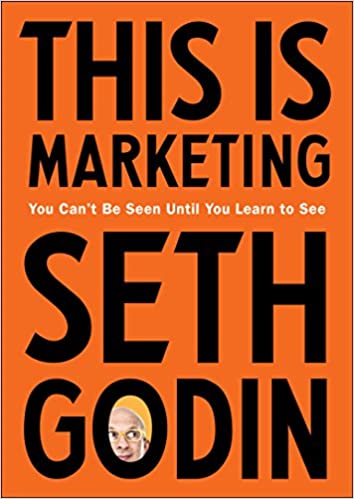
This Is Marketing
You Can't Be Seen Until You Learn to See
Seth Godin
I listened to more interventions of Seth Godin than I read his books. I like his way of thinking about how marketing should be. It's a more respectful approach to how we present our work (product or service) to the world. If you ever had a bad image of marketing (like I used to), you'll end up with a different opinion.
Three notes from the book:
1- Marketing is the generous act of helping someone solve a problem. Their problem.
2- For the independent creator of intellectual property (a singer, perhaps, or a writer), it turns out that a thousand true fans might be sufficient to live a better-than-decent life.
3- If you want to make change, begin by making culture. Begin by organizing a tightly knit group. Begin by getting people in sync. Culture beats strategy--so much that culture is strategy.
3-
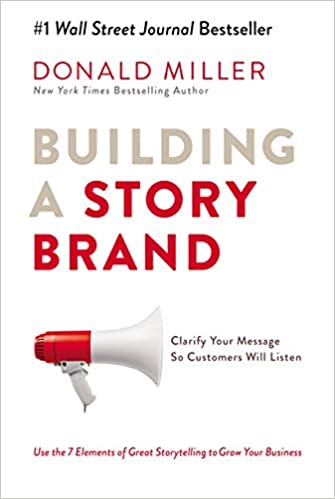
Building a Story Brand
Clarify Your Message So Customers Will Listen
Miller Donald
The one who tells the best stories win. Storytelling is an art by itself. This book gives a simple storytelling framework that is used in movies and businesses. Our ideas and products can be great, but without a great story to present them, they won't be attractive.
Three notes from the book:
1- Your customer should be the hero of the story, not your brand. This is the secret every phenomenally successful business understands.
2- How many sales are we missing out on because customers can't figure out what our offer is within five seconds of visiting our website?
3- in a story, audiences must always know who the hero is, what the hero wants, who the hero has to defeat to get what they want, what tragic event will happen if the hero doesn't win, and what wonderful thing will happen if they do.
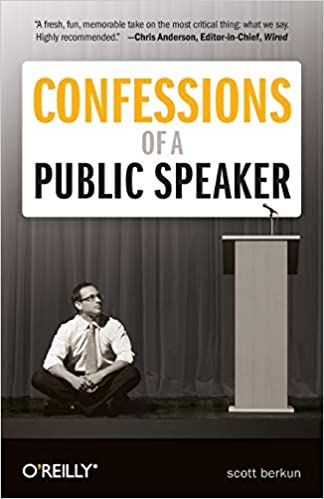
Confessions of a Public Speaker
Hilarious and highly practical bestseller
Scott Berkun
Public speaking was on the list of the things that freaks me out. Besides joining Toastmasters for practice, I bought some books to help me accelerate my learning. If you want to improve your performance, this book has practical tips and it's fun to read.
Three notes from the book:
1- If you want to be good at something, the first thing to go out of the window is the notion of perfection.
2- The body's reaction to fear and excitement is the same...so it becomes a mental decision: am I afraid or am I excited?
3- All good public speaking is based on good private thinking.
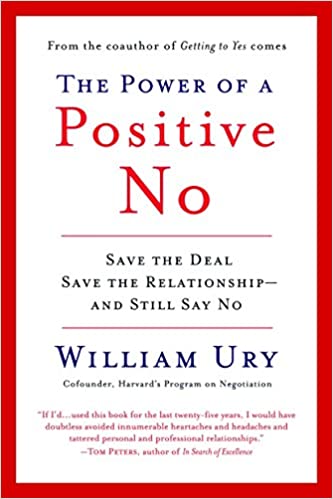
The Power of a Positive No
Save The Deal Save The Relationship and Still Say No
William Ury
Various reasons make saying No difficult for many people. I bought this book to help my colleague say No to an abusive situation. To be honest, I didn't expect that much. Do we need an entire book just to say No? But I was wrong.
Three notes from the book:
1- We all too often start by accommodating the other. Then naturally, we begin to feel resentful. After suppressing our feeling for a while, there comes the point when we suddenly explode, only to feel guilty afterward at the destructive impact of our attack. So we lapse back into accommodation or avoidance, ignoring the problem and hoping it will disappear.
2- If you can learn how to say No skillfully and wisely, you can create what you want, protect what you value, and change what doesn't work.
3- Perhaps the single biggest mistake we make when we say No is to start from No.
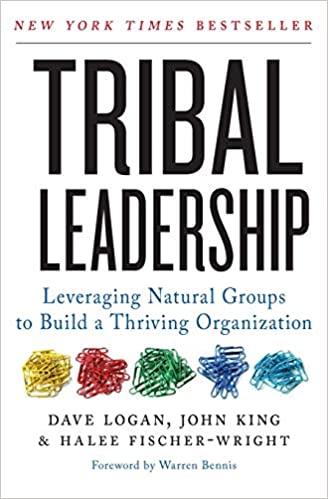
Tribal Leadership
Leveraging Natural Groups to Build a Thriving Organization
Dave Logan, John King, Halee Fischer-Wright
This book is about creating a killer company culture. Anyone in teams will find precious insights in this book. The authors identified five stages a tribe must go through to move from bad to excellent.
Three notes from the book:
1- People at Stage One are despairingly hostile, and they band together to get ahead in a violent and unfair world...People operating at Stage Two use language centered on "my life sucks"...The Stage Two talk is that they've seen it all before and watched it all fail.
2- The theme of Stage Three, the dominant culture in 49 percent of workplace tribes in the United States, is "I'm great". Or, more fully, "I'm great, and you're not"...The gulf between "I'm great" (Stage Three) and "we're great" (Stage Four) is huge...In fact, the full expression of the theme is "we're great, and they're not".
3- Stage Five's T-shirt would read "life is great"...Their language revolves around infinite potential and how the group is going to make history--not to beat a competitor, but because doing so will make a global impact.
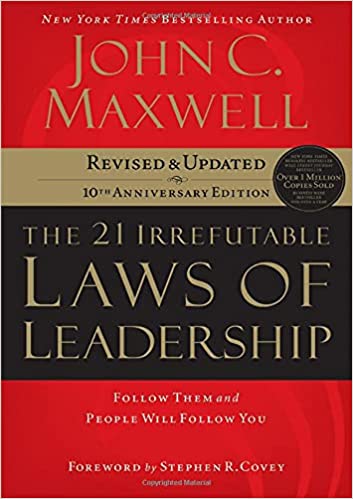
The 21 Irrefutable Laws of Leadership
Follow Them and People Will Follow You
John C. Maxwell
No one does the 21 laws well. But if you need to lead a team, this book can be insightful. It has an evaluation that will help you identify your strengths, what you can turn into strength, and the weaknesses you don't need to waste time on them.
Three notes from the book:
1- The bottom line in leadership isn't how far we advance ourselves but how far we advance others.
2- When people respect you as a person, they admire you. When they respect you as a friend, they love you. When they respect you as a leader, they follow you.
3- You can't move people to action unless you first move them with emotion...The heart comes before the head.
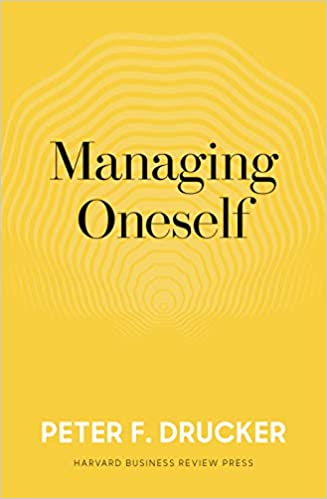
Managing Oneself
The Key to Success
Peter F. Drucker
Peter Drucker is considered the father of modern management. In this little gem, he's answering few questions to help us develop ourselves and manage our working life effectively.
Three notes from the book:
1- Most people think they know what they are good at. They are usually wrong. More often, people know what they are not good at--and even then more people are wrong than right.
2- The only way to discover your strengths is through feedback analysis. Whenever you make a decision or take an action, write down what you expect will happen. Nine or 12 months later, compare the actual results with your expectations.
3- Successful careers are not planned. They develop when people are prepared for opportunities because they know their strengths, their method of work, and their values.










